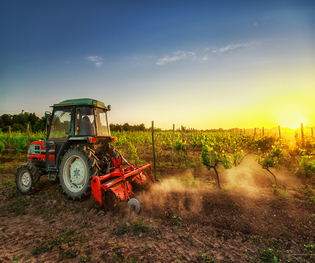Steve Reuter, a third-generation farmer, is transitioning into organics at his dairy farm in Minnesota—a transition that hasn’t come without its costs. Aside from adapting to the needs of the animals, transitioning into organics means buying organic seeds, maintaining a pesticide-free pasture, and hiring a company for proper certification—all of which comes with higher labor costs and an increase in prices.
As more companies decide to produce organics like Reuter’s dairy farm, the industry is placing a close microscope on companies that are utilizing organic labelling, especially for marketing.
According to Mark Kastel, co-founder of an organic industry monitoring company called the Cornucopia Institute, about half of the organic milk sold in the U.S. comes from dairy farms with a large supply of cows that can be difficult to monitor accordingly. “We have livestock factories with as many as 15,000 cows on an ‘organic operation,’” explains Kastel. As a result, it’s not unusual for large farms to push what it means to be considered as “organic.”
“Now that corporations have invested in organics, they would like to use that label for marketing purposes, with as little encumbrance as possible, in terms of their bottom line,” says Kastel.
For this reason, organic farms like Reuter’s must also provide detailed documents of the products they are buying to the certification company in order to meet industry standards.
Likewise, organic imports are also questionable, not only for the American market but for international markets like Canada’s organic industry. With a growing Canadian market that’s worth an estimated $3.7 billion, tightening the standards on the industry in the states will help to maintain the reputability of the Canada’s industry. Recently, the USDA discovered that soybean shipments from Turkey were fraudulently labeled as organic. As a result, the USDA removed the Turkish company’s organic certificate.
“There are some certification agencies we think are absolutely at fault for either turning a blind eye or being negligent about the grain that’s coming in from foreign countries,” explains John Bobbe, executive director of Organic Farmers Agency, a marketing group for U.S. organic producers. For this reason, Bobbe claims that the USDA should hire more inspectors when it comes to importing organics.
In the meantime, strategically—and carefully—transitioning into the organic industry by taking part in the necessary steps is a must as the industry continues to grow and expand—a process that Reuter’s farm is taking seriously in order to maintain the integrity of organics.







